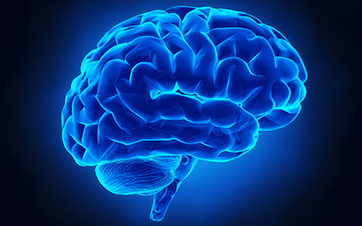
If you or a loved one are facing abrain tumor diagnosis, you're likely asking questions like what is a brain tumor, and how will it affect me? Learning more about brain tumors will help you get the support you need during this challenging time.
Read on to learn what you need to know about brain tumors and where to turn to for support.
What Is a Brain Tumor?
Brain tumors, also known as intracranial tumors, consist of abnormal cells that grow and form large brain tissue masses. A brain tumor can occur in any part of your skull or brain, such as the brain's lining or brainstem.
You can even get brain tumors in your nasal cavity and sinuses.
There are over 150 types of brain tumors, but there are two main groups of brain tumors which are metastatic and primary.
Primary Tumors
Primary tumors initially start growing in the brain. Sometimes they can break off and spread to other body parts, but this is rare.
Out of all types of brain tumors, gliomas and meningiomas most often originate in the brain.
Metastatic Brain Tumors
Metastatic or secondary brain tumors spread or metastasize from cancer somewhere else in the body. Metastatic tumors are much more common and grow rapidly.
Metastatic brain tumors are usually from breast, colon, or lung cancer.
Brain Cancer vs. Benign Brain Tumor
It's important to remember that while brain cancers are always tumors, not all brain tumors are cancer.
Noncancerous or benign brain tumors grow slowly and have noticeable borders. They rarely invade other areas of the brain or body. Even so, benign brain tumors can cause extensive damage to the brain.
This is because they tend to compress parts of the brain, which can result in severe impairments like vision loss. Common benign tumors include meningiomas that grow in the protective tissues of the brain.
On the other hand, malignant brain cancers grow quickly, invading healthy brain tissues and structures.
Are Brain Tumors Genetic?
It's possible to inherit a genetic mutation that increases your risk of getting a brain tumor. Approximately 5% of tumors link to specific hereditary conditions, like:
Neurofibromatosis
Neurofibromatosis is a condition that causes the mutation of genes like NF1, which make proteins for nerve cells in the brain. Having this increases the risk of brain cancers like gliomas.
Von Hippel-Lindau Syndrome
Von Hippel-Lindau syndrome impacts genes that regulate cell growth, like the VHL gene. If you have this syndrome, you're more likely to develop multiple benign and cancerous tumors.
Turcot Syndrome
Turcot syndrome is a genetic condition that causes many colon polyps, which increases the risk of colon cancer and brain tumors.
Nevoid Basal Cell Carcinoma Syndrome (NBCCS)
NBCCS is a condition that causes multiple basal skin cancers, jaw cysts, and calcium deposits in the brain. People with this have a higher risk of brain tumors.
Brain Tumor Causes and Risk Factors
There are different causes of brain tumors depending on the type of tumor.
Some cancers, like colon and breast cancer, cause metastatic brain tumors. Genetic factors like DNA changes cause cells to grow abnormally, resulting in different types of tumors.
Certain risk factors can cause you to develop a brain tumor like:
- Brain tumors are most common in young children and older adults
- Men are more likely to develop brain tumors
- Exposure to pesticides and oil products
- Exposure to certain viruses like Epstein-Barr
- Past head injuries and seizures
Finally, some evidence suggests previous treatment of the head or brain with ionizing radiation may increase risks.
Brain Tumor Symptoms
Since different areas of the brain are responsible for different functions, symptoms vary depending on the tumor's location. For instance, if a brain tumor sits near your optic nerves, you'll experience vision changes.
In addition, the tumor's size and growth rate also impact the symptoms you'll have. Regardless, many people experience common symptoms like:
- Seizures
- Headaches
- Behavior or personality changes
- Difficulty finding the right words
- Difficulty speaking
- Difficulty thinking clearly
- Dizziness or balance problems
- Hearing and vision problems
- Memory loss and confusion
Some people may also experience sudden weakness or paralysis on one side of their body.
Also, it's important to note that brain cancers don't usually cause a lump at the base of the skull or anywhere else. In most cases, you won't see any visible bumps or swelling as with other types of cancers.
Brain Tumor Diagnosis
Brain tumor diagnosis involves a complete neurological exam, brain scans, and a biopsy.
During a neurological exam, a doctor will first assess your symptoms. Then they'll check various neurological functions like balance, reflexes, vision, and hearing.
CT scans, MRIs, and X-rays are helpful to pinpoint the location of a tumor. Tests like a lumbar puncture to collect cerebrospinal fluid samples to test for tumor cells are also common.
Brain Tumor Staging
Staging is a process that identifies how much a tumor spreads to other parts of the body. Primary tumors usually don't need staging since they rarely spread past the brain's nervous system.
After a diagnosis, brain tumors will get a grade that defines their seriousness. This scale goes from grade 1 to 4, with grade 1 being the least aggressive type of tumor.
Most benign tumors are slow growing and typically classified as grade 1 or 2.
Canerous and metastatic tumors are usually grade 3 to 4, depending on how fast they grow.
Brain Tumor Treatment
For most brain tumors, the first line of treatment is surgery. For benign tumors, surgical removal is the only course of treatment. After this, you'll need scans periodically to ensure no regrowth.
Malignant tumors also require chemotherapy and radiation therapy to shrink the tumor and prevent it from returning. Other therapies like laser ablation and clinical trials can be helpful.
Treatment depends on the type of cancer and stage. Your doctor will discuss the best treatment course for you.
Understanding More About Brain Tumors
Knowing the answer to the question of what is a brain tumor will help you navigate a diagnosis much more easily.
Remember, you're not alone, and reaching out for support during the process is essential. Be sure to turn to The Connecticut Brain Tumor Alliance (CTBTA) to get the help you need.
Our mission is to provide hope and support to patients and caregivers affected by a brain tumor diagnosis. We also bring awareness to brain tumor research and quality of care.
We look forward to helping you, so contact us today by visiting us online or by calling 860-264-5776.
Disclaimer
All content and information on this website is for informational and educational purposes only and nothing herein shall be construed as medical advice. Always consult your medical provider for your particular needs and circumstances prior to making any medical decisions.

